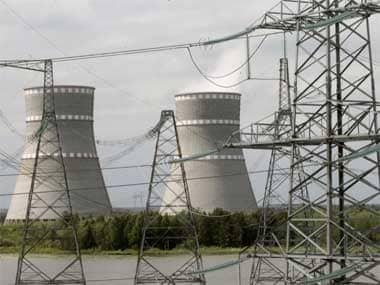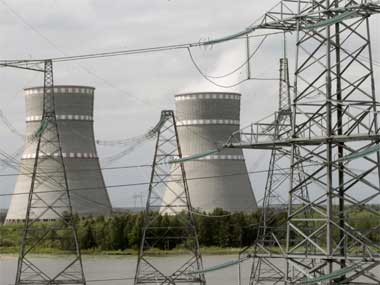Harish Hande, managing director, Selco Solar Light, spoke in detail to Firstpost on the sidelines of the World Economic Forum (WEF) India Summit on the “food-water-energy nexus” that was discussed in a session on Sunday.
At the panel discussion, the experts maintained that the only way of finding a long-lasting solution to the thorny issues of food, energy and water security was to think about all of them in unison.
Here are edited excerpts:
Can you tell us what you mean by the “food-energy-water” nexus?
[caption id=“attachment_129908” align=“alignleft” width=“380” caption=“If industry bodies like CII and FICCI can bring together hundreds of companies together, why is it that food, energy and water companies can’t come together and work out a joint solution? Reuters”]
 [/caption]
[/caption]
Harish Hande: Everyone has their own version of the nexus. Take a solar pump, for instance. The solar energy runs a pump that provides water to produce food. That is the nexus we are talking about. If the solar energy is free, the farmer will use water carelessly. Instead of cultivating groundnuts, he might shift to sugarcane. In other words, everything is interconnected. You can’t have separate solutions for food, water and energy.
What are the major policy changes that you would like to see?
HH: The major change we need is that all stakeholders must come together. The rural development ministry, the power ministry, the food department must have dialogue. What we see today is extreme fragmentation in planning, under which one part of government does not have a clue of what another part is doing. That needs to change if you want effective change.
What can be the role of private sector?
HH: The sector is escapist in nature. It does not actually want to get into this. The fact is they have a huge role in ensuring that food, water and energy sources are secure for everybody. What I would push for is ratings agencies taking into account social sustainability of the corporate world and not merely financial sustainability. We need socially sustainable businesses immediately.
If industry bodies like CII and FICCI can bring together hundreds of companies together, why is it that food, energy and water companies can’t come together and work out a joint solution?
What are your views on renewable energy?
HH: Use renewable energy only where it works. Look at Gujarat. The first company that comes to my mind is Amul. The cow dung there is sold by workers for Rs 200 a cart. But instead of selling it at such a pittance, I would suggest it should be used as bio-fuel.
Then you have parts of the Western Ghats, where small wind mills could work well as a source of energy. So, use renewable energies according to the appropriateness of their use in different areas.
Currently, what’s happening is that big companies and industries and governments decide on the source of power across vast areas. Grassroots decisions do not take place; the villagers don’t have any say in the kind of energy source they are expected to use. But just like states cultivate different crops, people can also have different sources of energy. When a few people monopolise energy decisions, it’s anti-democratic for the poor.
)